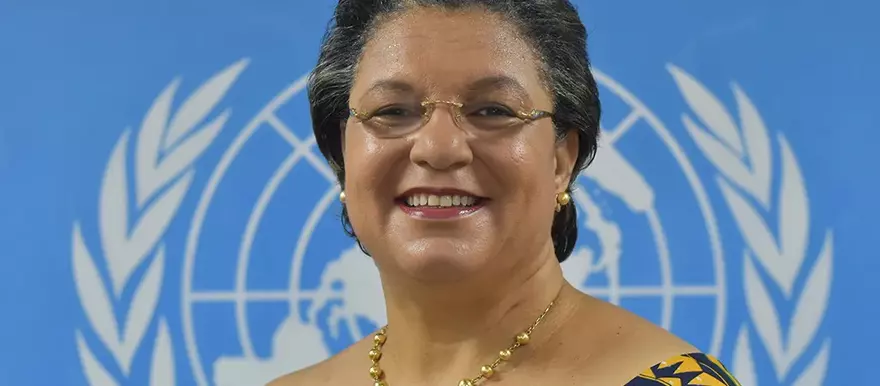The Special Envoy of the UN Secretary-General for the Horn of Africa, Hanna Serwaa Tetteh, on Tuesday briefed the UN Security Council on the progress made in the implementation of resolution 2046 (2012), which relates to outstanding bilateral issues between Sudan and South Sudan and the situation in South Kordofan and Blue Nile States.
She said the Sudan crisis which began in April 2023 remains a pressing issue, determined by military developments on the ground where “no warring party has the military means to achieve victory.”
According to the envoy, despite numerous mediation efforts, the civilian population continues to suffer the consequences of the violent confrontation between the Rapid Support Forces (RSF) and the Sudan Armed Forces (SAF).
She observed that this conflict impacts bilateral relations between Sudan and South Sudan and has far-reaching implications for the security and humanitarian situation in the Sahel and the Horn of Africa.
Painting a grim picture of the dire humanitarian situation in South Sudan, she said the influx of over 630,000 refugees and returnees from the Sudan conflict had increased pressure on the population’s limited access to food, water, and basic health services due to years of armed conflicts, inter-communal violence, and environmental shocks.
Moreover, South Sudan — heavily reliant on its oil exports — has seen a direct impact on its economy due to the conflict in Sudan. The conflict in Sudan has also impeded potential progress in resolving outstanding bilateral issues, she stressed, noting that “the lack of progress has resulted in growing frustration among the Abyei population, which feels that neither [country] is committed to resolving the issue of Abyei.”
Furthermore, she continued, the inter-communal violence involving the Ngok Dinka, Twic Dinka, and Nuer communities threatens security in the Abyei area.
In January and February, violence primarily between the Ngok Dinka and communities caused the death of more than 60 people, including two UN peacekeepers and four humanitarian staff. It displaced about 3,000 people from Abyei and about 20,000 from southern Abyei into Abyei town.
“The security situation in the Sudan has caused a complete collapse of basic services in northern Abyei,” Serwaa added.
It has also affected the delivery of basic services in southern Abyei, with health facilities and schools last supplied in April 2023 and some of the facilities occupied by the South Sudan People’s Defence Forces. Due to intercommunal violence, Abyei has had two consecutive years of unsuccessful harvest, a situation exacerbated by the impact of climate change.
Expressing concern that the presidential order that authorized troop deployment to quell insecurity by maintaining a buffer zone between the two contesting Dinka communities was not adhered to appropriately, she called on Juba to redeploy the South Sudan People’s Defence Forces outside the Abyei Box.
The interlocutors in Juba also called for additional police to be deployed in Diffra to secure the oil infrastructure that was abandoned by Sudan’s forces.
“The conflict in South Kordofan and Blue Nile cannot be resolved without a permanent ceasefire in the rest of Sudan and a political solution to the violent confrontation between SAF and RSF,” Serwaa observed.
Negotiations between the warring parties should pave the way for an inclusive political agreement leading to a reformed security sector and the building of a unified professional army, new institutional arrangements redefining the relationship between the so-called “center” and its “peripheries”, and recovery and reconstruction of Sudan, she emphasized, noting her continued engagement with Sudanese and South Sudanese stakeholders to address outstanding bilateral issues, including the final status of Abyei.




